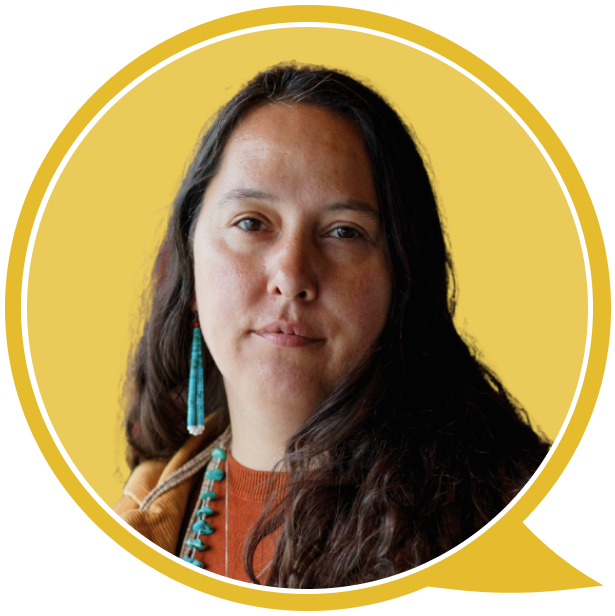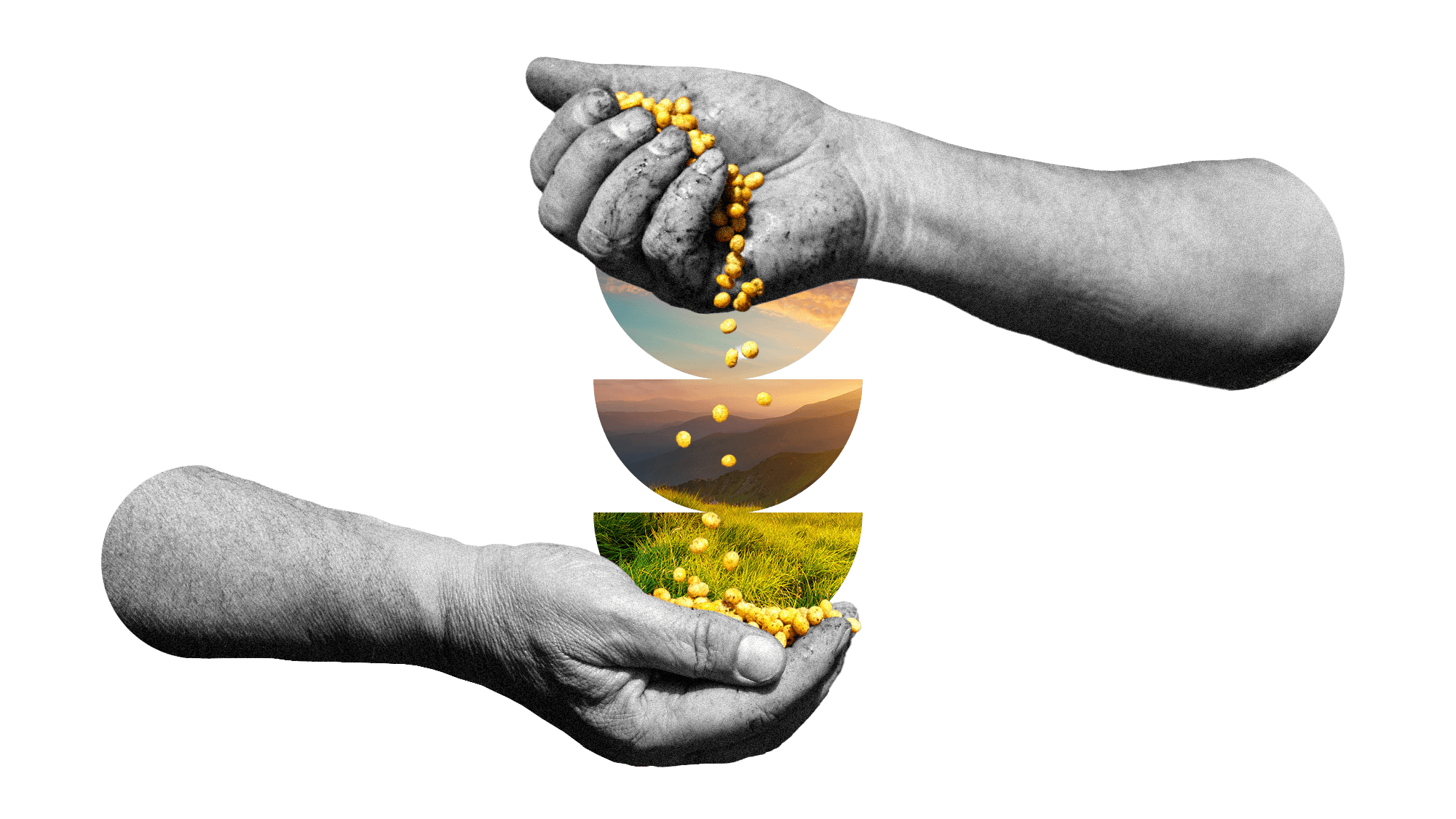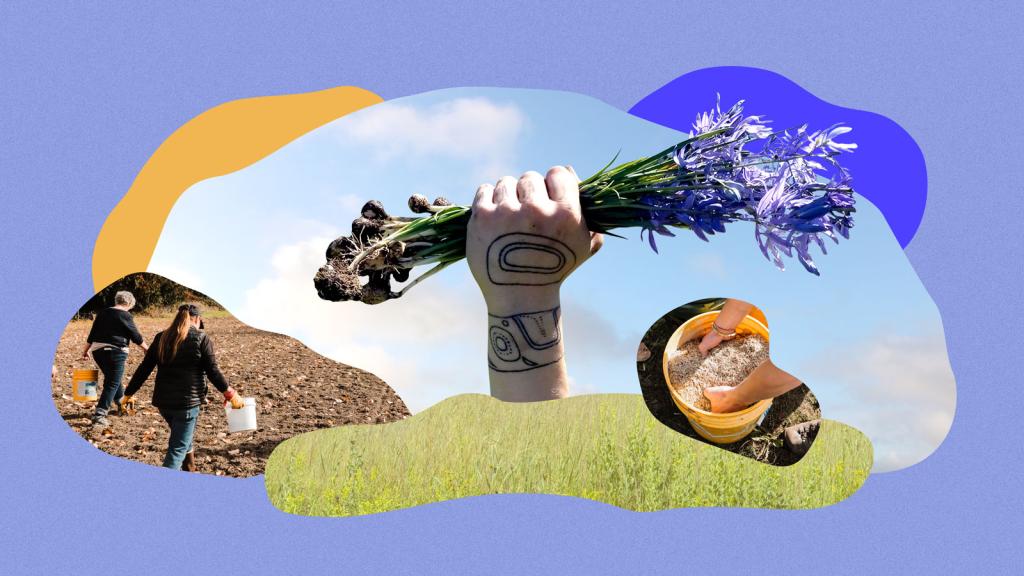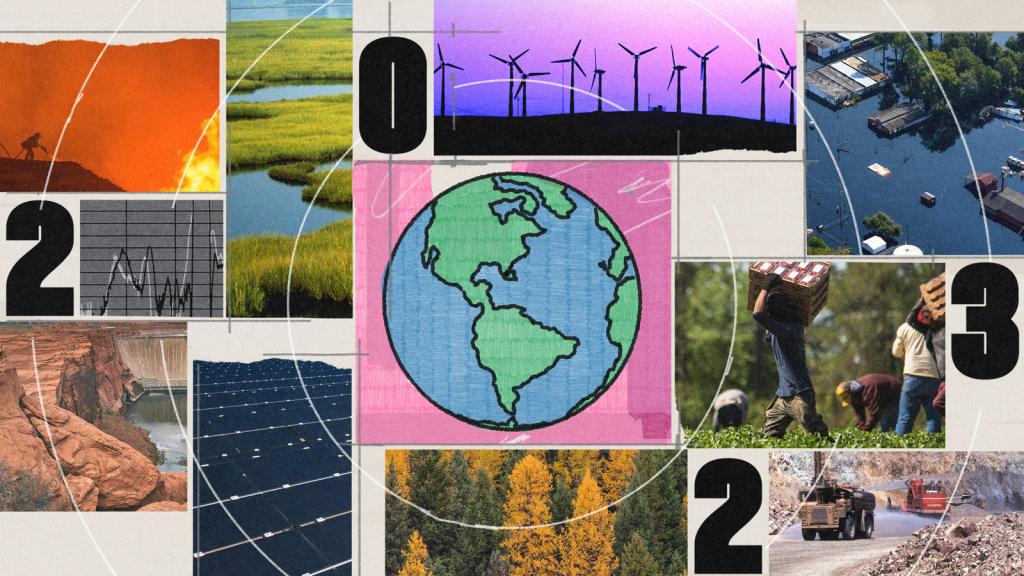Rowen White has spent more than two decades working with seeds. She believes they are more than the beginning of plants; they are links to our past, with memories to share and stories to tell. And that makes saving them key to ensuring a stable food supply in a changing climate.
For millennia it was common practice for farmers to harvest the seeds of their most successful plants and use them to continue the lineage. That started to change about 200 years ago with the rise of industrial food production and, more recently, increased reliance on engineered and genetically modified seeds. Preserving them for the next growing season often qualifies as a patent infringement, forcing farmers to buy new ones each year.
White, a Mohawk farmer in Nevada City, California, founded Sierra Seeds in 2007 to offer workshops and mentorship for those who want to revive the ancient practice. She argues that buying new seeds isn’t just a waste of money — it also prevents farmers from adapting plants to their bioregion, a vital process in a warming world. If a crop can thrive in, say, extremely dry conditions, saving seeds increases the likelihood that its descendants carry on its drought-resistant genes.
The practice also could increase crop diversity, providing further safeguards against climate change. Corporate control of seed breeding has narrowed the variety of plants available to maximize efficiency. Some 6,000 plant species have been cultivated as food over the course of human history. Today, just nine species account for 66 percent of global crop production, leaving our food system without the biodiversity it needs to withstand severe weather and disease.
In White’s view, seeds do more than ensure a vibrant food chain. They connect us to the cultural traditions of our ancestors. Her grandparents grew up on a farm in the Akwesasne community on the New York–Canadian border. Government assimilation programs forced them off the land and into boarding schools, preventing them from passing down agricultural customs. White says growing seeds that her tribe has maintained for generations, also known as heirloom seeds, has introduced her to the foods of her forebears that otherwise may have been lost. “As we seek to put the pieces of our Native communities back together, if we don’t include the seeds, then the effort will be hollow,” she says.
Fix talked to White about the healing powers of seeds, and how regaining control of them is key to ensuring food sovereignty and adapting to a changing climate. Her comments have been edited for length and clarity.
The stories seeds tell
 Ever since I was a kid, I’ve had a passion for getting my hands in the Earth. My family would say, “This must be your great-grandma’s spirit coming back through you.” I left home at 17 and found myself on an organic farm in western Massachusetts to learn more about where food comes from. I was grateful to have mentors who taught me about heirloom seeds — how they have stories and beautiful, co-evolutionary relationships with people.
Ever since I was a kid, I’ve had a passion for getting my hands in the Earth. My family would say, “This must be your great-grandma’s spirit coming back through you.” I left home at 17 and found myself on an organic farm in western Massachusetts to learn more about where food comes from. I was grateful to have mentors who taught me about heirloom seeds — how they have stories and beautiful, co-evolutionary relationships with people.
I knew that farming was integral to the Mohawk cosmology. But I didn’t know what foods fed my ancestors. During college, I was able to raise a grant and went home to consult with Mohawk elders. They entrusted me with bundles of seeds they had saved over generations, and I began to grow them and learn from them. That was the start of a 25-year path of understanding the inextricable relationship between cultural revitalization and the restoration of our Indigenous seeds.
Cultivating adaptation
The wealth of the Earth is concentrated in the hands of a very few. Part of Sierra Seeds’ mission is to restore the seed commons so communities have access to heirloom seeds and the skills to feed themselves. We need to reclaim that sovereignty to weather the worst of the climate crisis.
When people save seeds, they’re continuing the lineage of crops that grow well within their unique bioregion. Industrial agriculture has narrowed the genetic pool and looked at uniformity as king, because of its efficiencies. But that leaves our food systems vulnerable, because those seeds have less capacity to adapt to changes. There’s incredible diversity in the heirloom seeds that our ancestors stewarded. We need to return to that appreciation for variety as we create the food systems of the future.
A seed-saving renaissance
When I first started on this path, my elders asked, “Why do you want to find out more about these seeds? We thought this wasn’t of interest to young people.” The landscape today looks very different than it did then. I think people’s appreciation for food sovereignty and sustainable agriculture has been on the rise. The pandemic illuminated real weaknesses in our food system. It prompted people to go back to growing gardens, to fulfill that very human yearning to have a connection to the food we eat.
I also think seeds are compelling. Throughout the ages, families have passed them down from generation to generation with stories and memories of certain ancestors and flavors. In a time of great upheaval, and in a country where there’s a lot of cultural disconnection, connecting to seeds is another way of finding our way back into a place of belonging. Heirloom seeds — and the beautiful, delicious foods they grow into — naturally inspire joy and pleasure in people. They enliven something ancient within us.
Connecting to our ancestry through food
Each and every one of us descends from people who had rich relationships with food and plants. We teach a course at Sierra Seeds called Seed Seva that aims to help people become literate around saving seeds from their own ancestry. We emphasize the value of starting small. Even if you only know some of your lineage, research and find one food type and begin your journey. If you know you have Turkish lineage, learn about paprika peppers. If your ancestors are from Northern Europe, learn about wheats and oats native to the area. Search for that seed, find out how to grow it, cook it, share it. Every step along the way in the life cycle, you’ll learn something from the plants.
That’s one of the most powerful ways to restore our inherent power and help us move toward liberation. We need the agency to eat foods that restore our physical, mental, and emotional health, but also our spiritual health, by reconnecting to the divine life cycles that guide our faith-based systems. It restores our sense of identity and place in the world, and gives us the strength and power to build a better future for our children.



